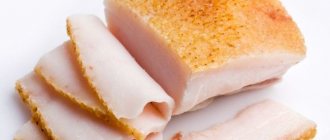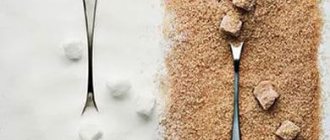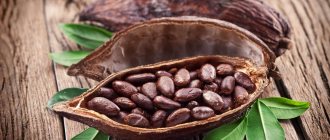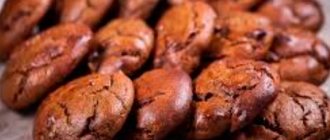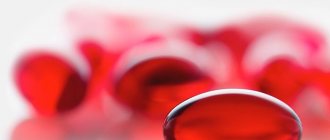Almost every person experiences various stool disorders several times in his life. Sometimes you can solve the problem yourself, sometimes you have to resort to the help of specialists. In any case, treatment must be approached comprehensively and competently, using medications. But during breastfeeding, more attention should be paid to the prevention of digestive disorders, this way you can protect both the woman and the child. Why does a nursing mother have diarrhea? Does he pose a threat to the woman and baby?
Read in this article
Causes
Stool disorders can occur for many reasons. But still, diarrhea more often appears when consuming low-quality products, and in most cases this is a foodborne toxic infection. It can be quite difficult to distinguish a serious pathology from a banal poisoning, so you need to know the symptoms, the presence of which requires you to immediately seek help from specialists.
Viral infection
Such diseases can occur in different clinical forms. The main viral infections with diarrhea include adeno-, rota- and enterovirus infections. You can become infected through airborne droplets and household contact. All these viruses are quite stable in the environment and are killed by boiling and prolonged heat treatment. Symptoms usually begin with a feeling of general malaise, dyspepsia and abdominal pain. Subsequently, diarrhea characteristic of viral intestinal infections appears: foamy, “like water,” with pieces of undigested food and an unpleasant odor.
Of all the above, rotaviruses cause diarrhea during breastfeeding in mothers with greater frequency.
All these diseases are characterized by an endemic nature: people in close contact immediately begin to get sick - in kindergarten, in the family, at school, etc.
Bacterial infection
In most cases, these pathologies are more severe and require medical supervision and treatment. Bacterial infections include salmonellosis, shigellosis, cholera, escherichiosis, and foodborne illnesses. The occurrence of these diseases in most cases is associated with eating food contaminated with bacteria.
Other diseases
If a nursing mother has ever had a stomach or duodenal ulcer, there is a possibility that after childbirth it will worsen and develop a serious complication - bleeding.
Other conditions
It is also necessary to take into account that taking certain medications can cause disruption of intestinal microflora and diarrhea. Most often, this side effect is caused by antibiotics. These conditions are not always accompanied by abdominal pain, and the stool is liquid, but colored dark or light brown. Such diarrhea during lactation may well develop in a mother if she is being treated for another disease.
Can I breastfeed during diarrhea?
Diarrhea during breastfeeding is not always an obstacle to breastfeeding. Often the condition is tolerated relatively easily and does not require treatment with serious medications that are incompatible with feeding the child.
For example, in case of an allergic reaction, the symptom of which is diarrhea, it is enough to remove the unwanted product from the diet, and the condition will go away on its own. In this case, there is no need to stop breastfeeding.
The situation is similar with irritable bowel syndrome. In this case, the doctor prescribes medications from the group of relaxants that do not affect breast milk. Breastfeeding will be absolutely safe for the baby.
However, there are times when breastfeeding will have to be temporarily interrupted. This measure is necessary in cases of acute intestinal infections, severe food poisoning, and rotavirus infections. In this case, serious treatment is required with the use of antibiotics or antiviral drugs. As you know, most of these medications are incompatible with breastfeeding.
Health hazard
Despite its apparent harmlessness, very often diarrhea can cause hospitalization and a life-threatening condition. How is it dangerous?
- Dehydration of the body. A lot of fluid comes out with the stool. Therefore, the main thing in case of diarrhea is to restore the water-salt balance. Along with water, microelements also leave, the presence of which determines the functioning of the heart muscle and other vital organs. Dehydration can cause your milk supply to decrease temporarily or even for a long period. Therefore, the risk that you will have to supplement your baby with formula increases. But you shouldn’t completely exclude breastfeeding if the woman’s condition allows it: along with the milk, the baby receives protection.
- Poisoning of the body by waste products of pathogenic bacteria. The symptoms of intoxication also depend on this - fever, weakness, lethargy, confusion, headache, lack of appetite and others.
- Serious intestinal infections (for example, shigellosis or samonellosis) can occur in particularly dangerous forms with damage to other organs - the heart, joints, etc. The occurrence of generalized conditions – sepsis – is also dangerous. Such conditions are treated only in a hospital setting, sometimes in the intensive care unit.
Diarrhea during breastfeeding is also dangerous because mother and baby are in close contact with each other, which contributes to infection of the child. In a small and fragile organism, the disease can occur in a more severe form, often a generalized infection. But you should not stop breastfeeding, since in a small number of cases, infection can occur through breast milk, but antibodies are transferred from mother to child, and it will be easier for the baby to overcome the infection later.
When to see a doctor:
- with diarrhea more than 10 times a day;
- with severe abdominal pain;
- if intestinal bleeding is suspected, dark stools;
- in general serious condition;
- at a temperature above 38 degrees for more than 3 days;
- if any other complications occur.
Why is diarrhea dangerous during breastfeeding?
Diarrhea during breastfeeding can lead to dehydration in a woman. Lack of fluid negatively affects lactation, reducing the amount of breast milk.
If we are talking about treatment with antibiotics, then breastfeeding will have to be temporarily stopped. If mommy does not take measures to preserve milk, then she may have to forget about breastfeeding, since lactation will stop.
If hygiene rules are not followed, the mother can infect the child with an intestinal infection. We must remember that such diseases in infants are more severe than in adults, so you need to behave extremely carefully and be sure to wash your hands with soap.
There are situations when diarrhea leads to the death of a person. Death occurs as a result of severe dehydration and exposure to toxins. Today, these cases are more the exception than the norm, but this is another reason to take this condition seriously.
We can talk about real danger only in the case of acute conditions, when there is no way to get medical help. In all other cases, diarrhea is a very unpleasant phenomenon, but does not pose a threat to the life of the woman and child.
How to treat
Many people believe that the most necessary thing to treat diarrhea during hepatitis B is antibacterial drugs. However, this is an incorrect statement. Drugs with similar effects are rarely prescribed and in severe cases; more often, simply intestinal antiseptics are used.
The most important thing in treating any diarrhea, especially at home, is restoring the balance of fluids and microelements. To do this, you need to drink at least five liters of water per day (3 - 4 times more than the volume of lost feces), it is advisable to alternate regular water with mineral water. There are special bags on sale for preparing a solution that contain the necessary composition of microelements for diarrhea. For example, "Regidron" and the like. You can also prepare these at home. To do this, you need to dissolve a teaspoon of salt and soda in 1 liter of water.
Diet should be limited, and light, non-gas-forming foods should be consumed. It is useful to eat crackers, rice and other fastening foods.
Medicines
Intestinal antiseptics, for example, nifuroxoside, can be used. You need to drink it strictly according to the instructions: usually for an adult woman this is 2 tablets two to three times a day. It can also be used during breastfeeding.
In such situations, drugs that restore intestinal microflora, which contain pre- and eubiotics, help in such situations. For example, bioflor or linex.
It is also effective to use intestinal sorbents, which “attract” and then remove all toxins. For example, smecta, activated carbon and others.
The use of doxycycline or chloramphenicol, which they liked to use 15 - 20 years ago, is absolutely unjustified without verification of the pathology diagnosis. Such prescriptions can only be made by a doctor after an examination.
ethnoscience
There are many folk recipes for infusions, decoctions and simply herbs. Such products have a bonding and antibacterial effect. For example, a mother can:
- If diarrhea occurs during lactation, drink dill water, and also brew lemon balm and mint.
- One tablespoon of wormwood and dill seeds must be poured into 200 ml of hot water and left for 2 - 3 hours. Drink 3 - 4 times a day.
- Pour 30 g of cumin seeds into 150 ml of boiling water and place in a thermos for 15 - 20 minutes. You can add dill seeds. Use 2 - 3 times, 150 ml.
We recommend reading the article on nutrition for a nursing mother. From it you will learn about the characteristics of a woman’s appetite during lactation, recommendations for the consumption of certain foods while breastfeeding, the possibility of eating meat and dairy dishes, fruits and vegetables.
Prevention
It is easier to prevent diarrhea during breastfeeding than to treat it later and worry about your baby. Prevention recommendations:
- store food correctly, especially during hot weather;
- do not eat even slightly spoiled fruits, vegetables, meat, fish, etc.;
- wash food and hands thoroughly before eating and during food preparation;
- try not to be in areas where infectious pathology is endemic.
Diarrhea during lactation can be either a minor digestive disorder or the beginning of a pathology that requires serious treatment. If the condition worsens or the disease lasts for a long time, you must seek medical help. Compliance with preventive measures will help protect the woman and baby from such conditions.
We recommend reading the article about diarrhea in a nursing mother. . Diarrhea in a nursing mother: what to do, how to treat it, if.
Vomiting and diarrhea usually cause a sudden loss of fluid from a young woman's body. . Diarrhea in a nursing mother: what to do, how to treat it.
Additionally, vomiting, diarrhea, nausea, colic, and cold floors may appear. You should immediately take medications that remove toxins.
source: grudinfo.ru
The causes of diarrhea can be different, from the most harmless to the very serious, caused by serious diseases.
In the first case, we can easily eliminate the broken stool ourselves. The second option requires mandatory research and drug treatment.
Diarrhea in a nursing mother should be of particular concern. The danger of some diseases when feeding a child is quite high.
When breastfeeding, some pathogenic microorganisms can be transmitted to the baby through mother's milk.
In this article, we will consider the questions: what is diarrhea, what threat to the baby’s health does diarrhea pose when breastfeeding the mother, is it possible to feed the child during illness.
First aid
Regardless of the cause of diarrhea in a mother who is breastfeeding, treatment should begin immediately. This will be the first first aid before going to the doctor. The first thing a nursing mother needs to do after giving birth is to exclude from her diet all fatty, spicy, salty and pickled foods, as well as sweets, desserts, milk and sour milk. In this condition, she requires a strict diet. Next, you should start taking enterosorbents, you can use activated carbon and Enterosgel, and this should be done immediately.
It should be remembered that the main danger of diarrhea of any etiology is dehydration. After all, the stool that comes out is highly diluted with water from the small intestine. Therefore, it is recommended that a mother nursing a child try to ensure a normal drinking regime. The most correct option would be to use pharmacy rehydration solutions, such as Regidron, etc. You can make them yourself, using warm water, soda, sugar and salt. They also restore salt balance in the body and help to quickly get rid of diarrhea, which should be treated immediately.
Activated carbon is a sorbent that is recommended to be taken for diarrhea (after cleansing the stomach).
A common cause of diarrhea in a nursing mother is food poisoning. The algorithm of what needs to be done before the doctor arrives, who will specifically tell you how to treat diarrhea, should be as follows:
- Rinse the stomach with a weak solution of potassium permanganate or ordinary boiled water.
- Try to provide yourself with bed rest, leaving the child with relatives.
- Drink as much water or rehydration solution as possible (ideally at least 1.5 liters per day).
- Refuse to eat for 12 hours, satisfying your hunger only with crackers and black tea.
- Take activated carbon or any other sorbent allowed during breastfeeding.
Diarrhea during breastfeeding, accompanied by nausea, vomiting, fever and other unpleasant symptoms, requires immediate medical attention. It is strictly prohibited to independently prescribe medications that are prohibited or simply undesirable during lactation. They can negatively affect the child.
Diarrhea in a nursing mother: causes, treatment
Diarrhea (diarrhea in common parlance) is a pathology in which the frequency of bowel movements exceeds three times a day, there is loose, watery stool, incontinence, possible cramps and pain in the abdominal area.
Why is this phenomenon unpleasant and dangerous for the child and mother? To answer an important question for a breastfeeding mother, let's turn to statistics.
In poor, developing countries, high infant mortality has been recorded (about two million babies) from a seemingly banal disease, diarrhea (diarrhea).
Digestive disorders occur for several reasons.
There are types of diarrhea that are harmless to a breastfeeding mother and baby.
- Diarrhea caused by laxative foods.
- Diarrhea due to stress, hormonal changes, emotional stress, irritable bowel syndrome.
The cause of diarrhea in the first case is certain types of foods with a laxative effect. This happens when they are consumed in excess of the norm or the physiological characteristics of a nursing mother.
If the exact cause of diarrhea is known, the disorder can be eliminated by symptomatic therapy.
No drug treatment is required for diarrhea caused by the following foods:
- curdled milk, kefir;
- fruits (prunes, kiwi, plum);
- fresh vegetables (beets);
- products containing insoluble (coarse) dietary fiber (bran, mushrooms, sunflower seeds, cereals, raw fruits and vegetables).
Symptoms of diarrhea can be easily eliminated by temporarily eliminating or replacing certain foods in the diet.
For example, if fresh apples cause upset, you can eat them baked. Mom needs to choose the composition of products that do not disrupt the gastrointestinal tract.
In the second case, diarrhea during lactation can be caused by an irritated stomach or intestines.
Many experts consider stress and emotional overload to be the main factors of irritable bowel disease. Mom should avoid stressful situations and organize proper rest.
A number of factors may contribute to the possible development of diarrhea syndrome in a breastfeeding mother.
- Eating gas-forming foods.
- Unbalanced diet.
- Eating foods low in soluble fiber.
- Binge eating.
- Fatty, fried, smoked foods, caffeine.
- Increased bacterial proliferation.
- Previous infectious diseases.
Irritable bowel syndrome is divided into three types: predominantly expressed by flatulence and abdominal pain; constipation; diarrhea.
Irritable bowel syndrome may be a consequence of irritable stomach syndrome and requires medical evaluation and possibly treatment.
Treatment for irritable bowel disease depends on the breastfeeding mother's diagnosis.
Here are the most common conditions and diseases that require special attention from a doctor and a nursing mother.
- Fatigue syndrome (chronic).
- Fibromyalgia (a disease of non-inflammatory origin).
- Reflux gastroesophageal disease.
- Pain in different parts of the back.
- Cephalalgia (headache as a consequence of various pathologies).
- Rare cases of mental and emotional disorders (depression, anxiety).
Often, under the guise of irritable bowel disease, a nursing woman may experience completely different symptoms: intolerance to food elements (fructose, lactose); anemia; insufficient intake of B vitamins.
For diarrhea associated with irritable bowel syndrome, the mother is recommended to consume the following foods and dishes:
- rice and semolina porridge cooked in water, rice water;
- walnuts;
- crackers (excluding dark bread);
- fruit and berry jelly and jelly;
- lean fish;
- chamomile tea;
- fixing decoctions, infusions;
- Black tea.
Diarrhea without pathology can be easily eliminated using traditional medicine methods. For treatment you can use: chamomile, oak bark, bird cherry berries, pomegranate peels.
Natural remedies for lactation
The safest remedies for diarrhea during lactation, when used correctly, are natural medicines.
The antibacterial and enveloping properties of plants have been known since ancient times. Treatment with folk remedies is effective for diarrhea in complex and mono therapy.
You can treat even serious diseases with natural medicines for a long time, without the risk of side effects.
A correct diagnosis, doctor’s recommendations, correct preparation and dosage are the components of successful treatment and prevention of diseases.
To treat diarrhea during lactation, it is possible and advisable to use the following herbal components with astringent properties:
- mountain arnica flowers;
- St. John's wort herb;
- raspberry leaves;
- alder fruit;
- rice;
- barley;
- sage leaves;
- roots of angelica and snakeweed;
- horse sorrel;
- Black tea;
- chamomile;
- horsetail;
- bird cherry fruits and leaves;
- dill greens;
- pomegranate peels;
- plantain seeds;
- tanalbin (sumac and mackerel leaves);
- dogwood jam;
- dried pears;
- dried and fresh blueberries;
- rose petals;
- chicken gizzard shells;
- leaves, fruits and roots of rose hips.
Pomegranate peels contain substances that destroy pathogenic microorganisms. The peel of one fruit is peeled from the white part, crushed, and poured with boiling water in a volume of 200 milliliters.
Leave until the infusion turns red. The infusion should be drunk completely.
Diarrhea can be effectively treated with homemade apple cider vinegar. Add 1 - 2 tablespoons of apple cider vinegar to 200 ml of high-quality water. Drink in small sips every 5 - 7 minutes.
Pour 700 ml of boiling water over half a glass of bird cherry berries and boil for five minutes. Leave the broth for one hour, strain. The infusion should be drunk four times a day, two tablespoons.
The problem of intestinal upset can be solved by using an infusion of plantain seeds.
Add one tablespoon of raw material to half a glass of boiling water and leave for twenty-five minutes. Then the entire infusion should be drunk along with the seeds.
Loose stools can be treated with dill decoction. For the product, use one tablespoon of greens per 200 ml of water, boil for 4 - 6 minutes. The decoction should be drunk immediately after bowel movement.
One tablespoon of oak bark is added to boiling water (700 ml). Leave for one hour and use one tablespoon five times a day (20 minutes before meals and 2 hours after meals).
To stop dehydration and maintain lactation, you should drink plenty of fluids.
Serious consequences can occur with intestinal infections and food poisoning without proper treatment. Disturbances in the functioning of the intestines occur when pathogenic microorganisms multiply.
Fever, very frequent loose stools, vomiting, nausea are symptoms that require urgent consultation with a specialist and treatment.
An infection in a nursing mother can be treated with approved medications that absorb and remove toxins from the body with enteric sorbents.
A number of drugs of natural origin are safe.
- Activated carbon.
- Polyphepan.
- Smecta.
- Filtrum.
Silicon-based products quickly remove toxins from the body. It is important to choose the right drug in the correct dosage, taking into account individual characteristics and existing diseases. Only a doctor can do this.
Enterosgel is used for the treatment of severe poisoning. The drug quickly removes poisons from the body. The dose for different age groups is selected individually.
On the first day of the disease, drink an aqueous solution of the gel at least three times. Subsequent rates may be reduced.
The drug Polysorb is used after consultation with a doctor. There are contraindications (intestinal atony, acute duodenal and gastric ulcers).
The product is effectively used for drug and food allergies, intestinal infections, poisoning, and intoxication. When breastfeeding, the dosage is determined by the attending physician.
For intestinal infections it is important:
- remove poisons produced by harmful microorganisms;
- normalize stool;
- restore the microflora of the gastrointestinal tract;
- stop fluid loss.
Most cases of intestinal dysfunction do not require discontinuation of breastfeeding.
In case of a viral disease, severe symptoms (fever, vomiting), or prescription of medication, a temporary break is possible. Feeding the child as usual begins after rehabilitation therapy.
Maintaining hygiene during breastfeeding is the main preventive measure to prevent the transmission of infection to the baby.
For example, rotavirus infection is transmitted orally, through dishes, hands, towels, contaminated foods, and water.
Diet is the main measure to restore intestinal microflora. It is necessary to consume foods containing lacto and bifidobacteria.
They eliminate pathogenic bacteria and microbes. In severe cases, the doctor decides to administer dosage forms.
Why is this happening
When breastfeeding, there are several main causes of diarrhea in the mother.
Irritable bowel syndrome
The most common everyday reasons can cause indigestion: daily stress, emotions, experiences - things that a young mother faces almost every day. With this syndrome, there is no vomiting, the temperature is normal, and there is no blood in the discharge. Diarrhea does not torment mom at night, because during sleep the intestinal walls relax and do not stimulate new urges. However, getting out of bed in the morning tones your muscles, and your diarrhea is right there.
Dysbacteriosis
It is known that bifidobacteria live in the intestines - normally they predominate. The presence of E. coli, staphylococcus and fungi is also normal. If there is a lack of enzymes in the mother’s body, or if foreign bacteria enter, the intestinal microflora is disrupted. The symptoms of dysbiosis are very similar to irritable bowel syndrome, body temperature will most likely also remain normal, and vomiting will not appear.
Poisoning
Products are not always of high quality, and a nursing mother runs the risk of eating something stale, which will inevitably lead to poisoning. Distinctive symptoms of poisoning: nausea, vomiting, moderately elevated temperature, stomach pain. Poisoning can usually be diagnosed 2-6 hours after consuming the unfortunate product.
Intestinal infections
Poorly washed food, dirty hands, poor hygiene in the home - and hello again, diarrhea! This is exactly what is called a “digestive disorder.” Usually, with an intestinal infection, there is no need to interrupt breastfeeding, since the disease is transmitted through unwashed hands, and not through breast milk. The main action of the mother, in order not to harm the baby, is to thoroughly wash her hands as often as possible, before each touch and feeding of the baby.
Allergic reaction
Sometimes food allergies occur suddenly and can also cause diarrhea. Most often, allergies manifest themselves in skin rashes and stomach upset. You need to exclude suspicious foods from your diet and observe what happens to you.
Rotavirus infection
An extremely unpleasant disease that is more severe in children. Sometimes it is called “stomach flu”, which is incorrect, since the causative agents are viruses of a completely different group. Rotavirus infection is characterized by:
- sudden and acute onset;
- vomiting (often with mucus);
- a sharp increase in temperature;
- loose and yellow stool on the first day, clay-like, gray stool on the second and third.
Breastfeeding during rotavirus can and should be done, since the mother’s immunoglobulins from milk protect the baby from infection. There is no need to kiss or touch the child with unwashed hands. But you can give breastfeeding.
If diarrhea is prolonged (more than 3 days), severe, it is very dangerous and requires immediate medical intervention. Diarrhea that lasts longer than three days not only causes dyspepsia (dehydration). It can provoke shock, in which cold sweat appears throughout the body, weakness, throbbing, and nausea. With such symptoms, urgent hospitalization is necessary!
Separately, it is necessary to highlight the most dangerous form of diarrhea – bloody stool. It is also called “black stool” because the blood can appear in the form of clots and can stain the stool black. It is necessary to call an ambulance, because this means that intestinal bleeding has begun, and hospitalization cannot be delayed.
Useful video
source: jeludokbolit.ru
For a nursing mother, diarrhea is a fairly serious problem, because the condition of her body also affects the health of the child. And in order to avoid such a problem, you need to pay special attention to proper nutrition. It should be remembered that the baby may be bothered by colic, since his stomach does not accept all the food.
Diarrhea in a nursing mother - what to do
Some women suffer first from constipation and then from diarrhea. If the cause of the symptom is a nervous disorder, then diarrhea goes away painlessly and quickly. Mom constantly wants to go to the toilet at this time (due to irritation of the colon), but there is no nausea. Another thing is diarrhea due to poisoning or an infectious disease. In this case, the immune system weakens, the woman feels unwell, a large amount of toxins accumulates in her blood... So, today we will talk about diarrhea in a nursing mother - what to do, how to get rid of the symptom and avoid its reappearance.
How does a nursing mother's diet affect the well-being of a newborn?
How can I help a nursing mother with diarrhea?
If you have a similar problem, we recommend that you proceed as follows.
- First, remove toxins from the body , which can be done with the help of a sorbent (for example, you can drink activated carbon, Enterosgel).
- To get rid of frequent bowel movements, drink a decoction of rice (or rosehip with St. John's wort), eat a hard-boiled chicken egg.
Preparing rice water
On a note! During the first few days of diarrhea, a nursing mother will have no appetite, however, she should eat well. In addition, you need to drink as much water as possible (the body uses a lot of fluid during this period), and you need to be wary of dehydration - it can negatively affect the health of the baby.
To improve intestinal microflora, it is recommended to eat yogurt and kefir. Any food with chemical additives should be avoided, as well as fast food products. The diet should definitely be enriched with bark/wheat/buckwheat/oatmeal porridge.
Yogurt helps improve intestinal microflora
How to treat diarrhea while breastfeeding
As a rule, the cause of diarrhea during lactation is a nervous breakdown, as noted earlier. A new mother suffers from postpartum depression, and this often causes diarrhea. To avoid this situation:
- control yourself;
- do not forget about personal hygiene, wash your hands thoroughly and often;
- do not eat fatty/spicy/fried foods, in addition, do not combine milk with fruits;
- keep a separate diet, do not consume carbohydrates and proteins;
- drink plenty of water to prevent constipation;
- Seek medical help promptly.
Drink as much water as possible
For maximum effectiveness of treatment, the cause of diarrhea should be determined. As a rule, the body copes with all pathogens on its own, but dangerous diseases (for example, cholera, dysentery, which are treated exclusively with antibiotics) need to be given special attention. The doctor will select the course of treatment, and he will decide whether it is necessary to continue breastfeeding.
Note! If you have diarrhea, you should avoid eating vegetables and fruits that are difficult for the stomach and dairy products. It is better to give preference to yoghurts with bifidobacteria.
In addition, you can additionally take Sorbex, Regidron, Atoxil and the like. Preparations containing apple pectin can stop diarrhea.
As for traditional medicine, a decoction of bird cherry berries or oak bark is effective for diarrhea during lactation. An infusion with peppermint is also quite effective.
Oak bark decoction
First aid for diarrhea on breastfeeding
Before the doctor arrives, you can take a few tablets of activated charcoal. It is also good to use more modern sorbents, such as Smecta, Polysorb and other drugs from this segment. These medications will not harm the baby because they do not pass into breast milk.
Important: Antidiarrhea medication must be prescribed by a doctor! Often a mother does not have the opportunity to visit a doctor because there is no one to leave her infant with. In this case, you need to call a specialist at home
Be sure to eat well, giving preference to foods with a fixing effect (rice, dry bread, hard-boiled eggs). Food is necessary not only to maintain the strength of a sick mother, but also for sufficient production of breast milk. The diet for diarrhea is quite meager, since it is necessary to follow a gentle diet. You can’t eat fatty, spicy, salty foods, fresh vegetables and fruits, and sweets. It is better to give preference to light foods - vegetable soups, porridge without oil, dried bread, dairy products with bifidobacteria.
Why is diarrhea dangerous during breastfeeding?
If diarrhea is caused by an infection, then the baby may well become infected from the nursing mother, but in this case the disease is more dangerous for the female body. For example, if her condition worsens sharply, she may have to stop breastfeeding for a while. In any case, there is no need to rush to transfer the baby to artificial nutrition . When the mother has fully recovered, breastfeeding can be continued.
Do not rush to transfer your baby to artificial feeding
Note! Dehydration is extremely dangerous for a woman’s body. The fact is that he will lose a lot of useful microelements, vitamins and fluids. If the diarrhea did not last very long, then there is no need to worry at all. But if the problem bothers you for too long, consult a doctor as soon as possible.
Dehydration test
Do not forget that when dehydrated, the mother experiences weakness and becomes lethargic. Sometimes - very rarely - diarrhea can even lead to death! Therefore, it is necessary to get rid of the symptom in a timely manner; You need to recover quickly to continue breastfeeding. In the future, to prevent the situation from happening again, be sure to follow the rules of hygiene.
Video - About breastfeeding during poisoning
source: stomach-info.ru
After the birth of a child, the mother needs to constantly monitor her health. But all her attention during this period is focused on the baby. Nursing mothers are thinking about how to treat diarrhea while breastfeeding.
Is it possible to feed the baby at the same time? Digestive disorders during lactation can lead to various complications.
Diet features
As mentioned above, diarrhea during breastfeeding requires plenty of drinking, taking sorbents such as Enterosgel and activated carbon, and a strict diet. Often, when women experience diarrhea after childbirth, they lose their appetite. Of course, you don’t have to force yourself to eat, but at the first feeling of hunger you need to go to the table. After all, a nutritious diet for a nursing mother is the key to good lactation and normal nutrition of the child. Food should be light and at the same time nutritious. It should not contain foods rich in fiber, as it causes fermentation in the intestines. You can eat boiled potatoes, bananas, baked apples, rye crackers and black tea.
After the condition of the nursing mother has more or less stabilized, you can begin to introduce other gentle foods into your diet. Rice and buckwheat porridge, steamed fish, boiled meat, and weak chicken broth are suitable. Do not also forget to drink a lot of fluid, which is necessary for a full breastfeeding.
To prevent diarrhea from returning, a nursing woman needs to be on a diet for a few more days after giving birth. Her diet should not include:
- Dairy products.
- Lots of vegetables.
- Fresh fruit.
- Fatty and fried foods.
- Sweets and desserts.
It would be useful to remind you that all foods eaten during lactation should be fresh and, if possible, natural. Only in this case will they be useful for both mother and child.
Causes of indigestion in a nursing mother
Irritable bowel syndrome leads to disruption of the gastrointestinal tract. This disease is characterized by the absence of vomiting. A pregnant woman does not suffer from bouts of diarrhea at night. However, upon awakening, the symptoms of diarrhea return.
Food poisoning can harm the mother. After eating a spoiled product, a large number of harmful bacteria enter the digestive system. Toxins are formed that lead to diarrhea. A pregnant woman begins to complain of vomiting, nausea and high fever.
Diarrhea is an allergic reaction of a nursing mother to certain food components.
Diarrhea is called the disease of dirty hands. The infection easily enters the digestive system along with food. This releases toxic substances that disrupt the intestinal microflora.
Symptoms of diarrhea include:
- frequent urge to defecate;
- sudden increase in temperature;
- a nursing mother experiences vomiting and nausea;
- women complain of headaches and rumbling in the stomach;
- there is a feeling of fatigue and drowsiness.
The disease can occur with complications. A woman may develop more serious disorders, which manifest themselves in the form of:
- black stool;
- there are inclusions of a greenish tint in the stool;
- a woman faints;
- diarrhea does not go away for too long;
- the high temperature does not subside.
In this case, diarrhea in a nursing mother requires immediate treatment. It is necessary to urgently consult a doctor.
Is diarrhea dangerous for a baby during lactation?
If you maintain good hygiene, then there is nothing to worry about. The infection can enter the baby's body only through the mouth.
Diarrhea during breastfeeding is more dangerous for the mother, as her body suffers from dehydration. Every trip to the toilet leads to the loss of microelements and vitamins necessary for life.
Breastfeeding should be stopped if the temperature rises and the mother's health deteriorates. In this case, it is necessary to switch to infant formula for the duration of treatment.
Prevention methods
To prevent diarrhea from returning after childbirth during breastfeeding, young mothers need to adhere to the following simple rules:
- Avoid stressful situations and strong emotional disturbances during and after pregnancy.
- Maintain personal hygiene carefully.
- Avoid excessive consumption of protein and carbohydrates.
- Eliminate or limit the consumption of fatty foods.
- Minimize your intake of plant fiber.
- Drink as much purified water as possible.
- At the first sign of distress, take activated charcoal.
These rules will help reduce the risk of diarrhea during such a crucial period in the life of any mother as breastfeeding, as well as quickly get rid of its negative manifestations if this trouble does overtake her. It is imperative for a nursing mother to treat diarrhea. Moreover, therapy should begin immediately after its first manifestations. In case of prolonged diarrhea during breastfeeding, urgent consultation with a doctor is necessary.
Diarrhea during breastfeeding is an unpleasant phenomenon that causes not only discomfort in a nursing woman, but also concern for the baby. Will the mother's upset stomach harm the baby? Should I stop breastfeeding? How can I get rid of the disease? These and other questions plague young mothers during lactation.
Diarrhea or diarrhea is frequent and watery stool, which can be caused by poor diet or drug poisoning, intestinal dysbiosis and worms, digestive infection and even stress. The main danger of diarrhea is that it causes dehydration. It is important to choose the right treatment depending on the causes.
How to treat diarrhea during feeding
Diarrhea can be a result of severe stress. After childbirth, many women experience nervous tension. While feeding the baby, the mother must remain calm. However, not everyone can cope with fatigue and anxiety.
How to treat diarrhea in a nursing mother who is constantly afraid because of the baby’s condition?
There are many drugs that can restore a weakened nervous system. Be sure to consult your doctor before taking them.
When an infection occurs, doctors prescribe antibiotics. The decision to stop feeding is made depending on the specific situation.
You can eliminate the consequences of diarrhea in a nursing mother with the help of activated carbon, Atoxil or Sorbex. They are completely safe not only for the mother, but also for her child.
Atoxyl is a powder that is pre-dissolved in water. The medicine should be taken about an hour before meals.
Rehydron is used to stop fluid loss. The drug allows you to restore the acid-base balance.
Smecta is a powder extracted from natural materials. It helps with intoxication of the body. The components of smecta bind various bacteria and toxins. Substances that irritate the digestive system are eliminated naturally.
Sorbents help get rid of diarrhea. These include Polysorb, Enterosgel and Filtrum. Taking these drugs does not irritate the intestinal mucosa. There are practically no side effects.
Thanks to sorbents, you can quickly get rid of toxins that poison the body of a nursing mother.
The baby can catch an infection if the mother is not clean. It is necessary to ensure the cleanliness of hands, utensils and clothing.
Diarrhea in a nursing mother may occur after poor nutrition. It is provoked by fatty dishes with a lot of spices. Treatment of diarrhea in this case consists of adjusting the diet.
During diarrhea you need to drink about 3 liters of fluid. This will help you stay hydrated.
Danger signs: when to consult a specialist
If a woman's diarrhea is not frequent or long-lasting, it can usually be eliminated with medications or alternative medicines. Chronic and severe indigestion is severe and requires consultation with a specialist.
Severe diarrhea is dangerous because it can lead to dehydration. In this case, the nursing mother’s body begins to lose all useful and necessary substances and vitamins.
If you lose more than 10% of fluid, undesirable consequences occur, such as general weakness, weight loss, loss of appetite. This condition can even be fatal .
You should consult a specialist if a woman’s diarrhea lasts more than three days.
As a result of this phenomenon, a state of shock develops.
Shock is accompanied by such symptoms as tachycardia, cold sweat, dizziness, and weakness. These symptoms require medical attention.
Consultation with a doctor is also necessary if the frequency of bowel movements is more than seven times a day.
A timely visit to a medical facility in such a situation will help avoid dehydration.
An ambulance should be called when blood is found in the stool. This phenomenon may indicate bleeding in the digestive organs. Black or green stool with mucus can be dangerous.
High fever and vomiting accompanying diarrhea also require hospitalization. A dangerous sign is the occurrence of seizures.
Folk remedies
To help a nursing mother get rid of diarrhea, you can use the following recipes:
Oak decoction helps eliminate inflammatory processes in the intestines. To prepare the product, we need 1 tablespoon of bark and 300 ml of water. The broth should boil for 10 minutes. You need to take the prepared solution 1 tablespoon 3 times a day.
Rice water coats the intestinal mucosa. Thus, it protects it from irritating substances. Pour 2 tablespoons of rice into 500 ml of boiling water. It is advisable to rinse rice cereal before use. Cook the product over low heat for about 40 minutes.
Cool the finished broth and strain with gauze. In order for the product to have a therapeutic effect on the body, you need to drink a quarter glass every 2-3 hours.
Pomegranate peels contain substances that destroy pathogenic microorganisms. And this is one of the reasons for the appearance of diarrhea. Pomegranate peels for diarrhea must first be crushed and poured with a glass of boiling water. Infuse the decoction for about 30 minutes. A glass should be drunk before meals.
Bird cherry berries can cope with an infection that has entered the digestive system. Pour a tablespoon of fresh berries into a glass of boiling water. For the solution to infuse, you will have to wait about 30 minutes. The decoction should be drunk 3 times a day, 100 grams at a time.
Diet for diarrhea for mothers breastfeeding
Eliminate from your diet:
- Dairy products that activate the intestines;
- Various fruits, as they contain a lot of fiber;
- Vegetables and greens that stimulate the digestive system.
- Carbonated drinks;
- Salty, spicy and fatty foods;
If you have diarrhea, you can eat:
- dishes prepared from cereals;
- boiled meat;
- low-fat fish varieties;
Drying and crackers will help you quickly cope with the symptoms of diarrhea. A nursing mother should drink approximately 3 liters of fluid. This is twice the normal amount. Water is necessary to produce enough milk.
In addition to water, you can drink infusions of rice and chamomile. You need to eat food even if you have no appetite.
https://youtube.com/watch?v=xzN0NCNgVyg
Treatment at home
At home, first of all, you need to establish nutrition. Eliminate possible factors for diarrhea. Introduce light vegetable broths into your diet, prepare dishes only by boiling, stewing or steaming.
If you have diarrhea, you should increase the amount of fluid you drink; it is better to drink purified, clean water rather than various types of drinks. Be sure to include strengthening foods in the menu - rice, rye bread, hard-boiled eggs, jelly from fruits and berries allowed during lactation.

